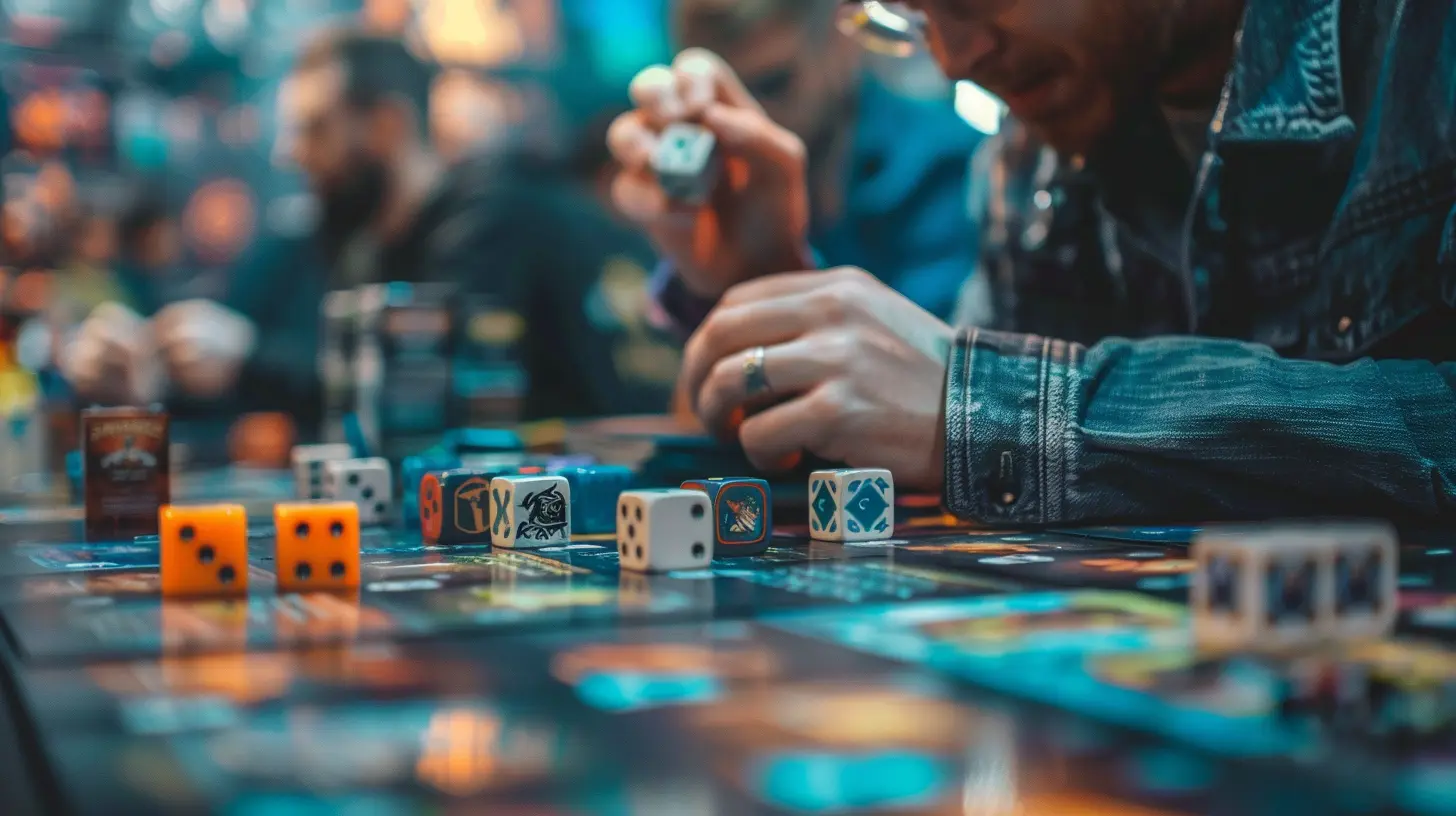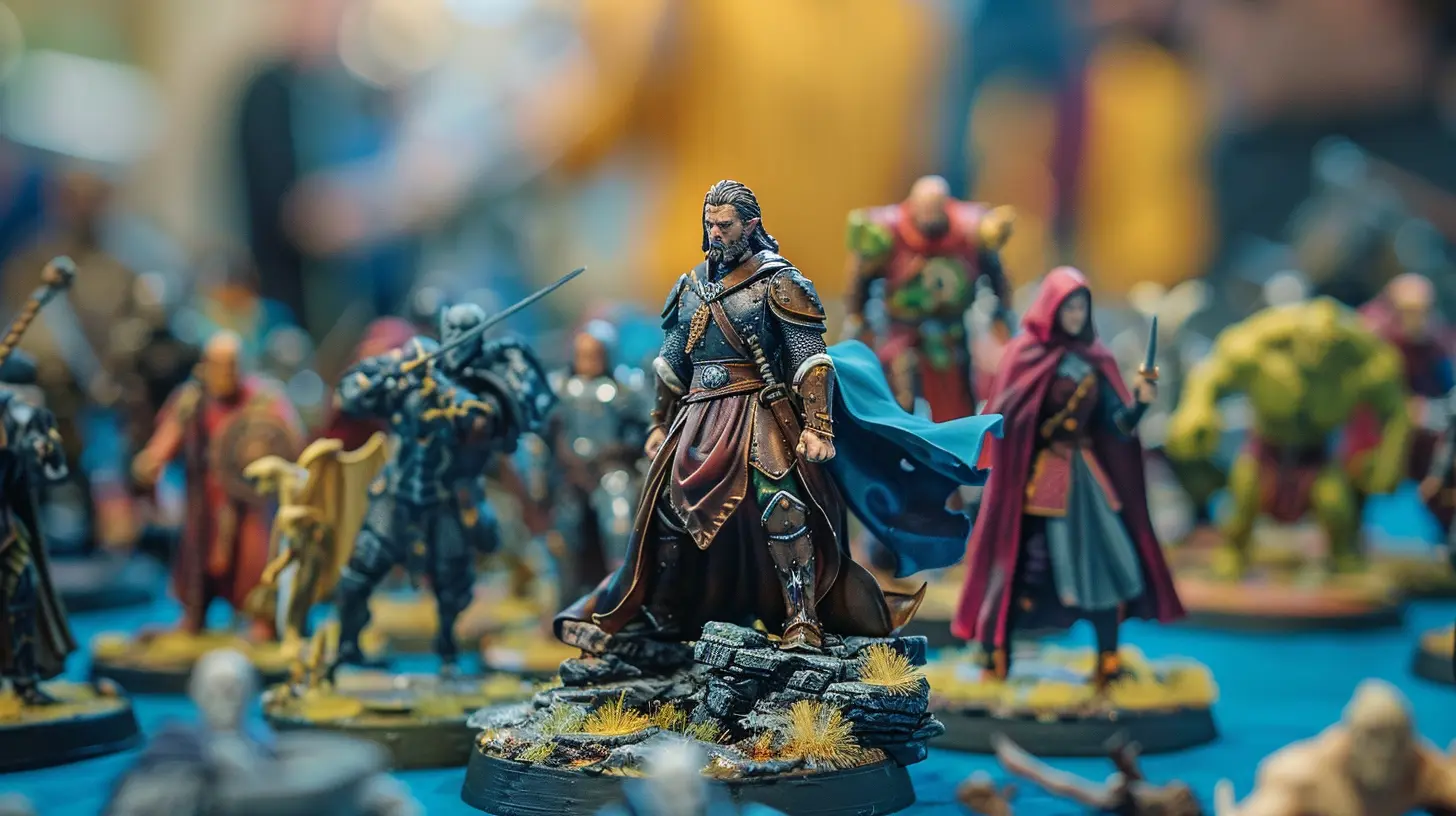Tabletop Games Based on Popular IPs: Are They Any Good?
3 July 2025
Let’s talk about the elephant in the board game cafe: tabletop games that are based on big-name IPs. You’ve seen them. You’ve probably picked one up in a moment of weakness at Target, lured in by the glossy image of Darth Vader holding Monopoly cash. But are these games actually worth your time, or are they just pretty boxes full of disappointment?
That’s what we’re here to unpack. Whether you're a hardcore board game geek or someone who occasionally rolls dice with friends over snacks and awkward small talk, you've likely stumbled upon tabletop games borrowing from movies, TV shows, comics, and even video games. So let's crack open the box and see if what's inside is worth the hype.
What Even Counts as a “Popular IP” These Days?
Before we dive headfirst into cardboard chaos, let’s define what we mean by "popular IP." Basically, if it’s something with a built-in fanbase—like Star Wars, Marvel, Harry Potter, The Witcher, or heck, even Bob’s Burgers—it probably qualifies. IP stands for "intellectual property," but in our context, it really means, “that thing you love that someone is now selling in board game form.”From childhood cartoons to gritty Netflix dramas, if people obsess over it, someone’s probably made a board game out of it.
The Great IP Board Game Divide
Now, the world of IP-based tabletop games tends to fall into two dramatically different camps:1. The Money Grab Fluffers
These are the games that slap a popular logo on a very familiar game and call it a day. Think “Game of Thrones Monopoly” or “Fortnite Uno.” They’re functional but uninspired. Like putting a tuxedo on a potato and calling it Mr. Fancy.
2. The Passion Projects
These are games where the creators clearly love the IP. They dig into the lore, respect the characters, and design mechanics that actually make you feel like you're in that universe. It's not just "Star Wars Risk"—it’s “Star Wars: Outer Rim,” where you smuggle goods and dodge bounty hunters like a true galactic scoundrel.
The key difference? Effort. And probably a developer who doesn't just see dollar signs.
When IP Tabletop Games Actually Work
So, let’s shine a light on the good stuff first. Yes, it’s absolutely possible to make a great game based on an existing franchise. Here are a few gems that have earned their place on our shelves:1. Star Wars: Rebellion
> “It’s like someone took the original trilogy, shook it really hard, and turned it into a phenomenal two-player game.”Star Wars: Rebellion isn’t just a rebranding of something basic. This is an epic cat-and-mouse game between the Rebel Alliance and the Empire. It’s packed with tension, strategy, and moments where you actually feel like you’re hunting rebels across the galaxy or nervously hiding your base on some backwater planet like Hoth (shh, don’t tell Vader).
It’s heavy, long, and absolutely brilliant. If you’re a Star Wars fan, it hits the sweet spot between storytelling and gameplay.
2. The Witcher: Old World
The Witcher franchise is already packed with lore, monsters, and morally questionable decisions. The Old World board game captures that vibe with some impressive mechanics and jaw-dropping artwork. You can explore the Continent, pick fights with beasties, and upgrade your skills—just like Geralt would (minus the bathtub scene... sadly).It’s not just a quick cash-in. This game feels like The Witcher—alchemical potions and all.
3. Marvel Champions: The Card Game
This one is a love letter to comic nerds. You don’t just pick a card and call it a day—each hero has their own deck, playstyle, and tricks. Iron Man needs time to build his suit. Spider-Man swings around evading attacks. It nails that Marvel flavor and keeps things fresh with new expansions.And yes, you can absolutely team up Captain America and She-Hulk to punch Ultron in the face. Who wouldn’t want that?
When It Goes Terribly, Terribly Wrong
Alright, now that we’ve admired the crown jewels, it’s time to turn to the dark side. Because let’s be honest—some IP games are about as much fun as reading the terms and conditions on a Wi-Fi agreement.1. Monopoly: Literally Any IP Edition
We need to have a serious talk about Monopoly. Look, I get it. It’s nostalgic. It’s everywhere. But painting it with a Harry Potter-themed brush doesn’t magically make it a better game. It's still a slogfest where Uncle Jerry ends up rage-quitting after two hours.Changing Baltic Avenue to “Hog’s Head Pub” doesn’t add strategy or excitement—it just tricks fans into buying the same game for the umpteenth time.
2. Clue: [Insert Franchise Here] Edition
If you’ve ever played “The Office Clue” or “Rick and Morty Clue,” you might be thinking, “Hey, this isn’t too bad.” And you’d be half right. It’s not bad... it’s just the same exact game you played 20 years ago. With different names.You’re not really solving a new mystery—you’re just pressing new stickers onto the same dusty mechanics. It’s less about immersion and more about merchandising.
The Real Question: Are They Fun?
Alright, we’ve beaten around the bush long enough. So are these games actually fun to play?Here’s the honest answer: it depends. And not in a wishy-washy kind of way. It depends on your expectations.
- If you're looking for deep strategy, immersive stories, and balanced gameplay, you need to be picky. Stick to the passion projects—the ones made by designers who clearly love the IP as much as you do.
- If you're buying something to bring to a family game night where half the crowd doesn't even know what a meeple is, a casual, recognizable IP game might hit the sweet spot.
The trick is looking beyond the flashy box art.
The Magic Combo: Theme + Mechanics
Let’s get nerdy for a second. The best tabletop games based on IPs find that magical alchemy between theme and mechanics.- The theme pulls players into the world. It makes the game feel like a living, breathing story, not just moving pieces around.
- The mechanics make the experience fun on its own terms. You shouldn’t need to love the IP to enjoy the game. But if you do? All the better.
When those two elements work together like peanut butter and jelly (or dice and dragons), you’ve got a winner. When it’s just theme pasted awkwardly on clunky gameplay, well... it’s like putting ketchup on ice cream. Not pretty.
Are IP Games Good for the Hobby?
Surprisingly, yes! Even the mediocre ones.Here’s the deal: tabletop gaming has exploded in popularity over the years, and IP games are a huge gateway drug. A lot of folks get pulled into the hobby because they saw a “Stranger Things Dungeons & Dragons Starter Set” or a “Lord of the Rings Adventure Book Game” at their local bookstore.
It gets people to roll dice, shuffle cards, and perhaps—just maybe—go down the rabbit hole of discovering better, deeper, more original games. So even the not-so-great IP games are doing a public service.
Tips for Picking the Good Ones
Let’s say you’re standing in a game aisle, staring at a shiny new board game with your favorite characters on the cover. Here’s how to figure out if it’s worth it:1. Check the Publisher and Designer
Look them up. If their name pops up on other great games, it’s a good sign.
2. See What Reviewers Say
The board game community online is brutally honest. If a game sucks, someone on YouTube or Reddit has already ranted about it.
3. Consider Replay Value
Does the game offer unique scenarios, branching paths, card decks that change every round? Or is it the same experience every time?
4. Avoid Pure Re-Skins
If it’s Monopoly, Risk, Clue, or Trouble and just has a new coat of paint—skip it. These usually don’t add any real value.
5. Watch Playthroughs
YouTube is your best friend. Watching someone else play it can tell you a lot about game flow, fun factor, and whether it’s your cup of meeple tea.
Final Thoughts: It’s Not Just Fan Service
So, are tabletop games based on popular IPs any good?Sometimes, they’re brilliant.
Sometimes, they’re painful cash grabs.
Often, they’re somewhere in the “this is fine” middle.
The real joy comes when a beloved universe is faithfully brought to life through clever mechanics and thoughtful design. When that happens, it’s more than just a game—it’s an experience.
So next time you see a board game version of your favorite show, don’t judge it by its cover alone. Peek under the hood, read the fine print, and maybe—just maybe—you’ll find your next game night obsession.
Now go forth and roll those dice… responsibly
all images in this post were generated using AI tools
Category:
Tabletop GamesAuthor:

Lana Johnson
Discussion
rate this article
2 comments
Troy McCray
Who knew board games could pack so much nostalgia? Tabletop battles with our favorite characters? Yes, please! Let the dice roll and the fun unfold!
November 18, 2025 at 4:12 AM

Lana Johnson
Absolutely! Tabletop games based on popular IPs often bring cherished characters and stories to life, enhancing the nostalgia and excitement of gameplay. Let the adventures begin!
Benjamin McWilliams
Great read! It’s always exciting to see our favorite IPs come to life on the tabletop. Whether they hit the mark or miss the boat, it’s all about the fun we share with friends. Happy gaming!
July 7, 2025 at 2:57 AM

Lana Johnson
Thank you! I completely agree—it's all about the joy of playing together, no matter the outcome. Happy gaming!


